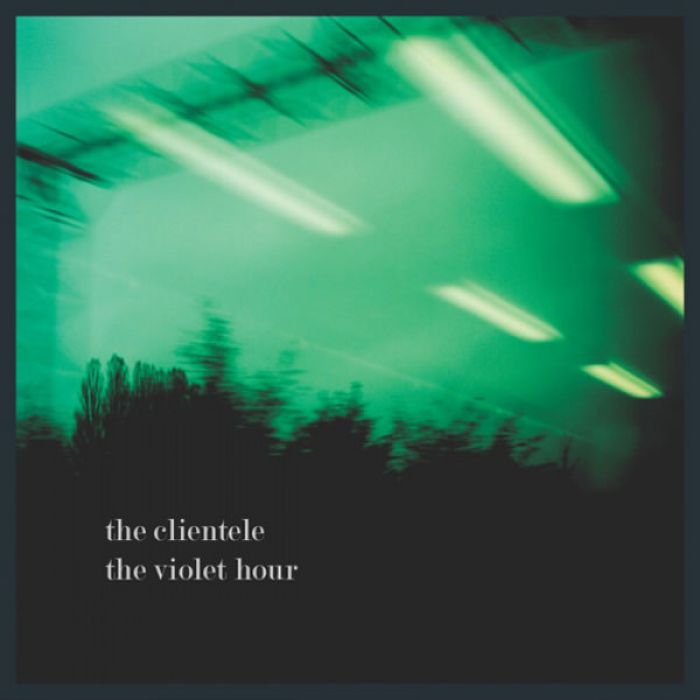The Violet Hour by The Clientele (Review)

I first heard The Clientele when I purchased Suburban Light, an album’s worth of collected singles and b-sides which I had heard enough positive comments about to have the desire to buy it. And what I got was exactly what had been described by the Amazon reviewers whose opinions I had trusted: a CD of rainy day pop songs that sounded like a cross between The Beatles and The Velvet Underground, with telltale song titles such as “Rain,” “Monday’s Rain,” and “As Night is Falling.”
But I wasn’t sure if I liked it. There were pretty songs, particularly the nostalgic “Reflections After Jane” with its warm chimes and peachy bass, but I couldn’t help but cringe at some of the lyrics of the other songs (“And I want you more than ever, and I want you still forever,” etc.). While I was partly charmed by the record, I wondered if it belonged on an oldies soft rock radio station rather than in my CD player.
So when I learned they had a new CD out, I was divided on whether or not I should get it. Part of me wanted to hear more of their hazy, retro pop while the other worried I would still find it boring. But, after downloading a song or two off of their more recent EPs and reading a bit more on the band, I decided I would buy it. And what I got was more of the same, and on first listen, it left even less of a positive impression than Suburban Light. However, a few more listens reshaped my opinion, and now I can say just about the opposite of what I would have beforehand.
The title track, which opens the disc, begins immediately with Alasdair Maclean’s muddled vocals and glistening guitar, and develops quickly into what I find to be one of the best songs they’ve done. With Maclean singing about lost summers coming and going, over the steady race of cymbals and lots of pretty guitar, it’s one of the catchiest songs you’re likely to hear the band do, if not one of the catchiest songs you’re likely to hear period. The short, lonesome “Voices In The Mall” takes a more dreary approach, with harmonica and country-esque guitar work, and the next two tracks, “When You And I Were Young” and “Missing” typify the band’s elegiac lyrics. The former, a jangly song where Maclean seems to be stumbling over himself with words, details a walk through childhood, while the latter takes a more pained look at nostalgia as he sings, “I’ve got so much longing in my heart, I can’t even sleep.”
Generally, the sound of The Violet Hour is the same as on Suburban Light, except a bit jazzier, slower, and subtler, but the band does manage to throw in a few surprises on the disc. “Jamaican Rum Rhumba” is a traditional guitar melody, and, while still sounding more like rainy England than sunny Jamaica, it does have a bit of a tropical tinge to it. The band also demonstrates an edgier side. “Porcelain” features a harsh bass solo from James Hornsey and “The House Always Wins,” which at 8 minutes is uncharacteristically long for the band, captures them rocking out with foggy blasts of guitar.
The album ends with “Policeman Getting Lost,” a touching acoustic song by Maclean, which gives The Violet Hour much more shape than its predecessor. Songs like this show a more mature, and perhaps better Clientele than that heard on Suburban Light. The band has established themselves as one that can not only make you smile with lovely pop songs but can also move you with beautiful ones. While they may not ever reach the sheer goodness of “Reflections After Jane,” they’re definitely one of the most consistent bands around today, and the next time they release something, I will not hesitate to get it.
Written by Richie DeMaria.